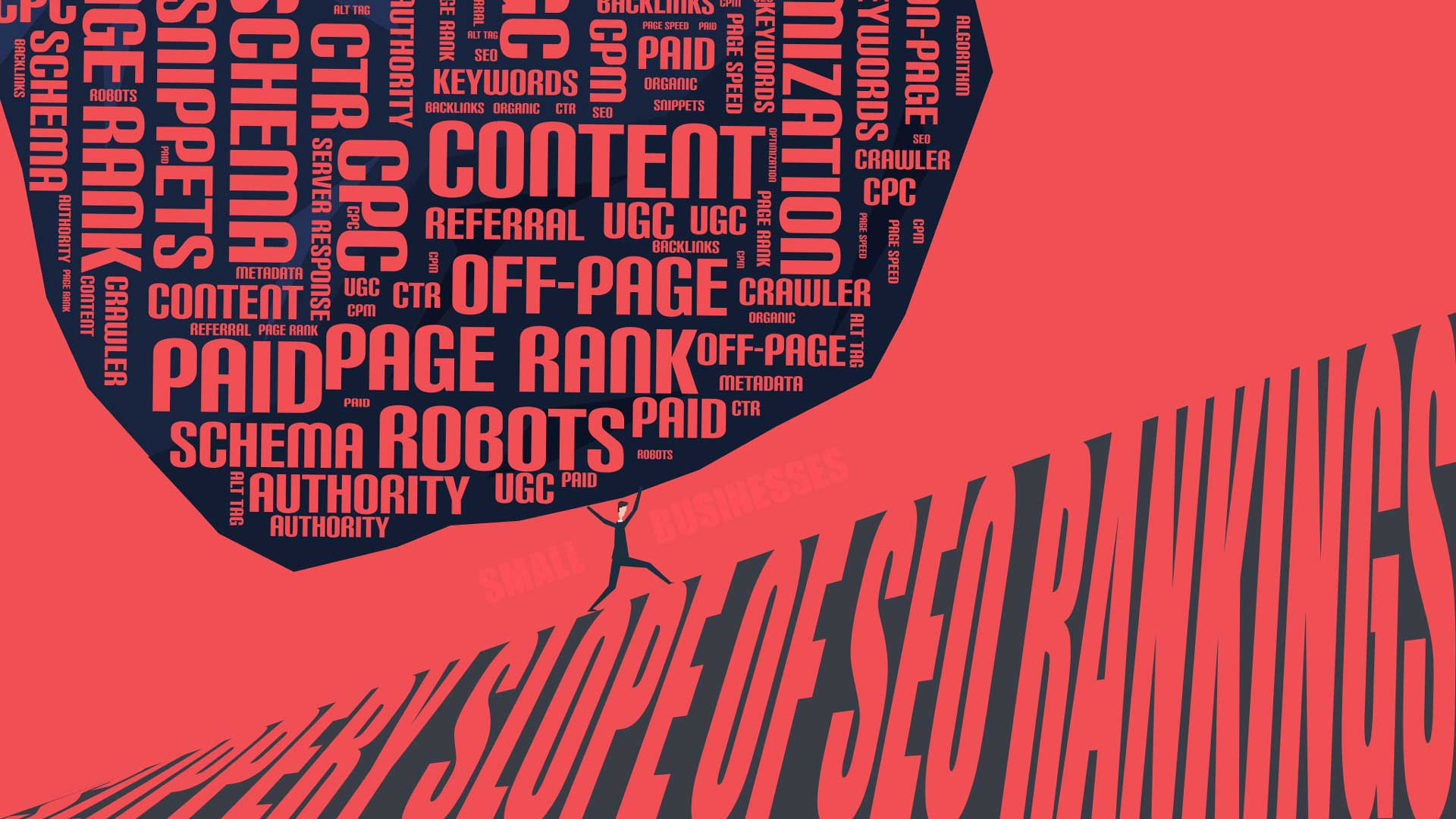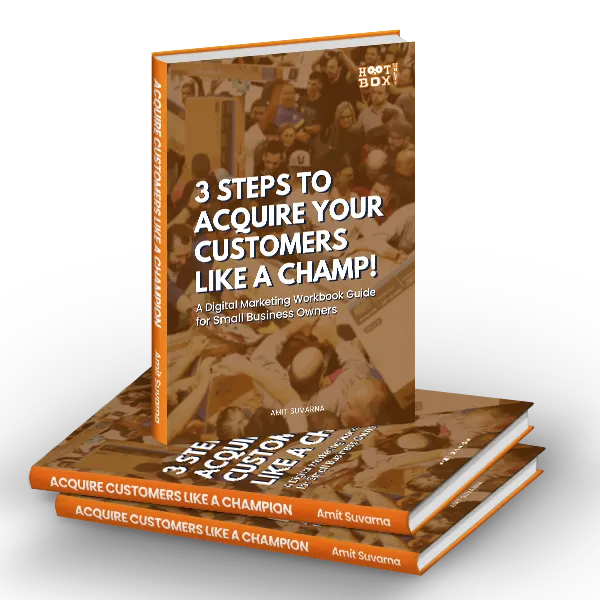The sheer volume of websites and assets online makes it nearly impossible for small businesses to make a dent in search traffic. Businesses build websites to showcase their credibility and to be found, yet search engine optimization – SEO for small businesses gets increasingly difficult as time passes. So it is natural to be distressed and frustrated that search is doing you no favours despite trying everything within your means.
However, it is inaccurate to think that large businesses have it easy. They just have more resources in their arsenal to devote to SEO.
True. SEO for small businesses is tough.
Let’s see why that is.
More important stuff to do than working on SEO for small businesses

I am guilty of this as well. With any small business, there’s so much to be done in the day that SEO gets the short end of the stick. After all, we don’t consider SEO to be a revenue-generating activity, so it doesn’t feel as important.
Small business and startup employees tend to be overworked. Putting more work on the plate like doing SEO research and implementation for your small business website obviously gets tackled last. Many times, its ignored and forgotten. This is why bigger organizations hire SEO experts to get it done so they can focus on the business.
No money to pay for SEO

This is perhaps the reason so many small businesses can’t do well with SEO. Bigger firms have dedicated marketing budgets to spend on advertising, social media, and SEO. Smaller organizations just can’t compete with that.
Another thing is that SEO is a long-running affair, and not cheap. Reputed SEO companies have packages that begin at $750 per month. And it takes months of SEO work before any good results show up, especially for competitive niches. Most small businesses can’t afford this financial stress.
No time to do SEO

Consider the simple tasks of SEO
- Doing keyword research
- Building high-quality content regularly
- Getting web pages optimized
- Securing the site
- Promoting content on different platforms
- Running tests
- Finding influencers and reaching out for guest post possibilities
These simple tasks take rigorous work and can easily consume time; time that most small business employees just don’t have enough of.
While there are infinite resources that can teach you SEO online, implementing SEO is a real hog of time. To compound matters, it could take a while to see the fruits of that continuous labour. So it’s understandable that SEO for small businesses is a neglected asset. Over time this leads to under-optimized websites and poor rankings.
SERPs are saturated. The early big business bird already got the worm.

Despite the overnight SEO success some “professionals” profess, let me assure you outranking established businesses in short periods of time is almost impossible. For how long have you known McDonald’s, IBM, Times of India and Bata? These businesses have been in business for a long time.
Search engines rank pages and sites on a number of factors. One of the big ones up there are attributed to how long the domain has existed. While big businesses have been around longer and have content built up over time, small businesses are starting from scratch.
Small businesses also have relatively newer sites, with less content and fewer pages. This in turn means fewer targeted keywords and even lesser ranking possibilities. Bigger businesses now have legacy content that they can repurpose with ease. There is no doubt they have a leg up in the race.
Search engines are also trained to serve pages which may get clicked more often. People generally prefer to open pages when they see big brands they are familiar with. This continues to make SEO for small businesses especially tough.
No SEO tools

This is tied to limited budgets small businesses have. SEO tools help automate time-consuming tasks and help with research work that elevates SEO. However, most of these are paid tools that incur recurring monthly expenses. As an example, SEM Rush costs $99.95 per month while even Mailchimp paid packages begin at $9.95 per month.
Though these tools really help gain a competitive advantage, most small businesses can’t afford to invest in them and use free versions instead. This is a step in the right direction.
No clout for link building or media coverage

Big businesses have an equally large reputation, almost exactly how a large object casts a large shadow. News from such businesses gets picked up with relative ease, building numerous links to their websites in the process. Say, Sony launches a new game. News will spread fast with many media outlets covering it. Youtubers and bloggers will feature it without so much as a second thought. These days it doesn’t even need to be the whole product or service, but leaked images or footage of it that makes headlines.
However, you can’t leverage clout if you don’t have any. Small businesses lose out here big time.
If SEO for Small Businesses is so damn hard, should you still do it?
Absolutely.
You may not have shiny wheels, but you can use your legs. SEO for small businesses is just harder and takes longer. Never give up on SEO work even if you are doing the bare minimum. That means putting in the time to
- Get your website checked for technical SEO
- Research keywords to see what your audience may be interested in
- Create high-quality content regularly
- Promote the content on different platforms
Get this rolling. I can help you with this if needed. The rest will follow when you can invest some finances and resources to do much more intensive SEO work.

